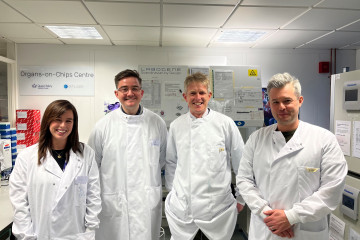Project grant
Production of a Human Growth Plate Organ-Chip Model of Skeletal Development

At a glance
Completed
Award date
January 2023 - July 2024
Grant amount
£199,987
Principal investigator
Professor Martin Knight
Co-investigator(s)
Institute
Queen Mary University of London
R
- Replacement
Read the abstract
View the grant profile on GtR
